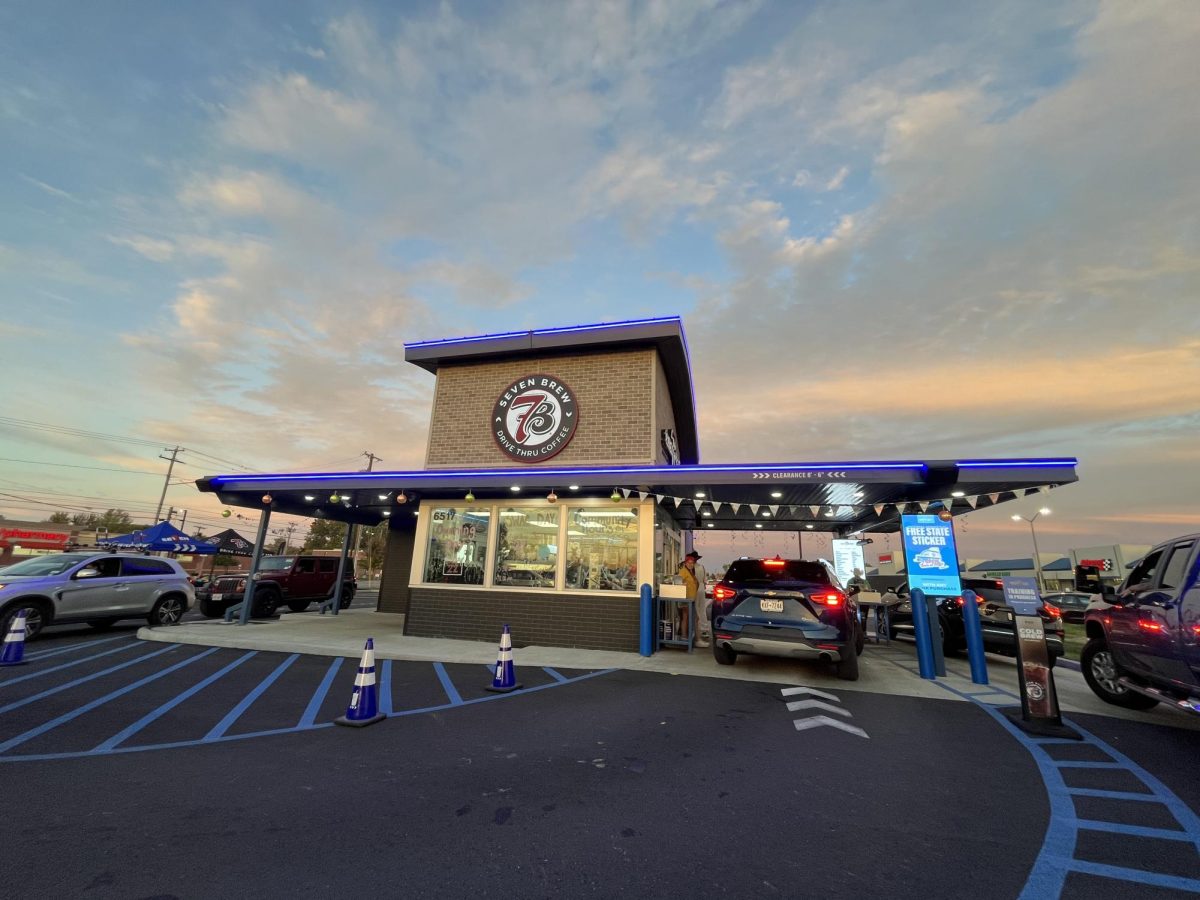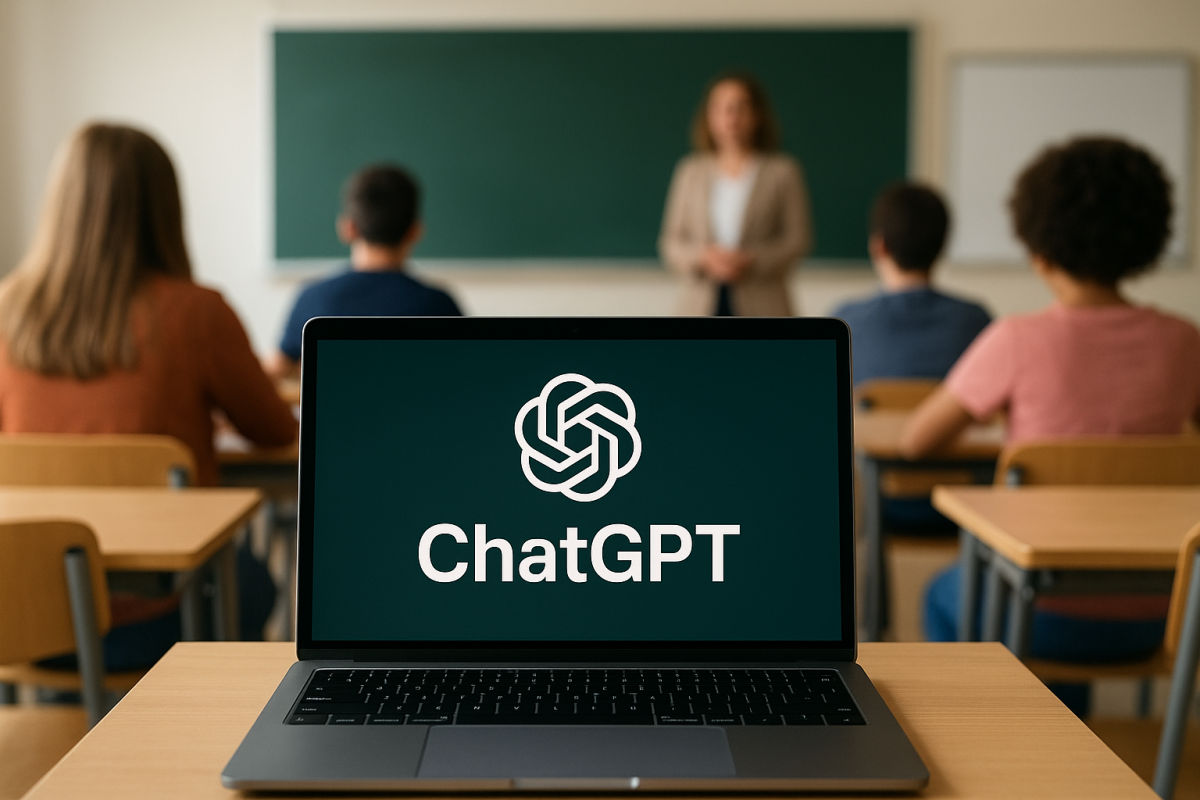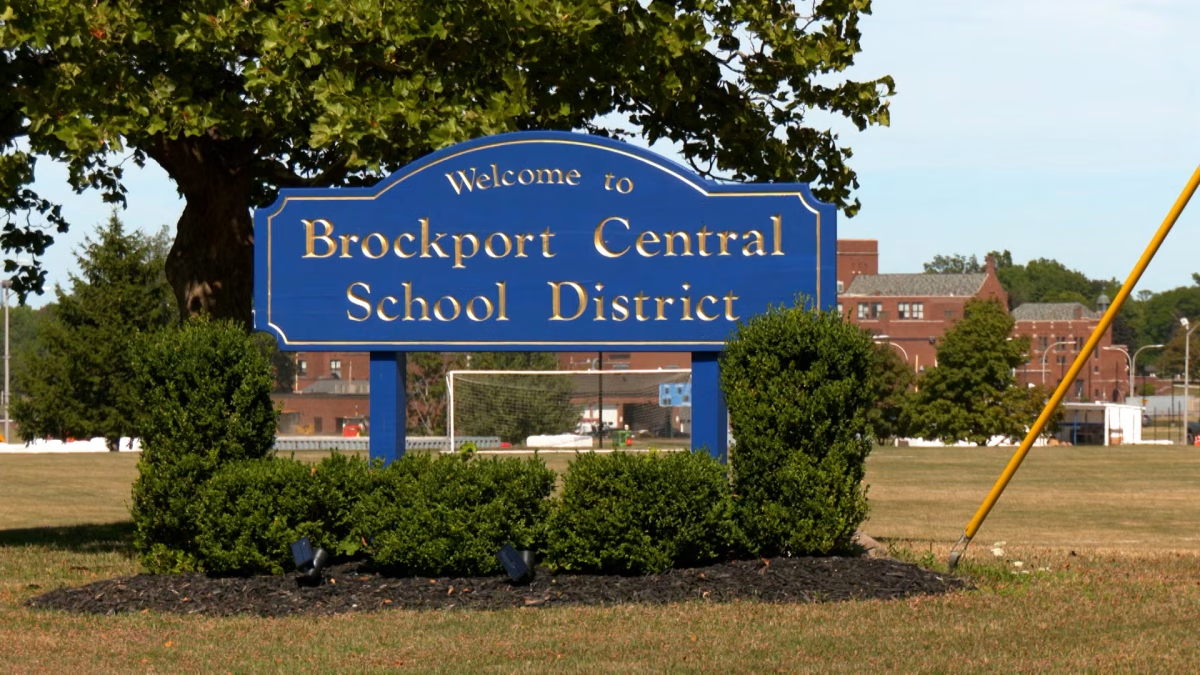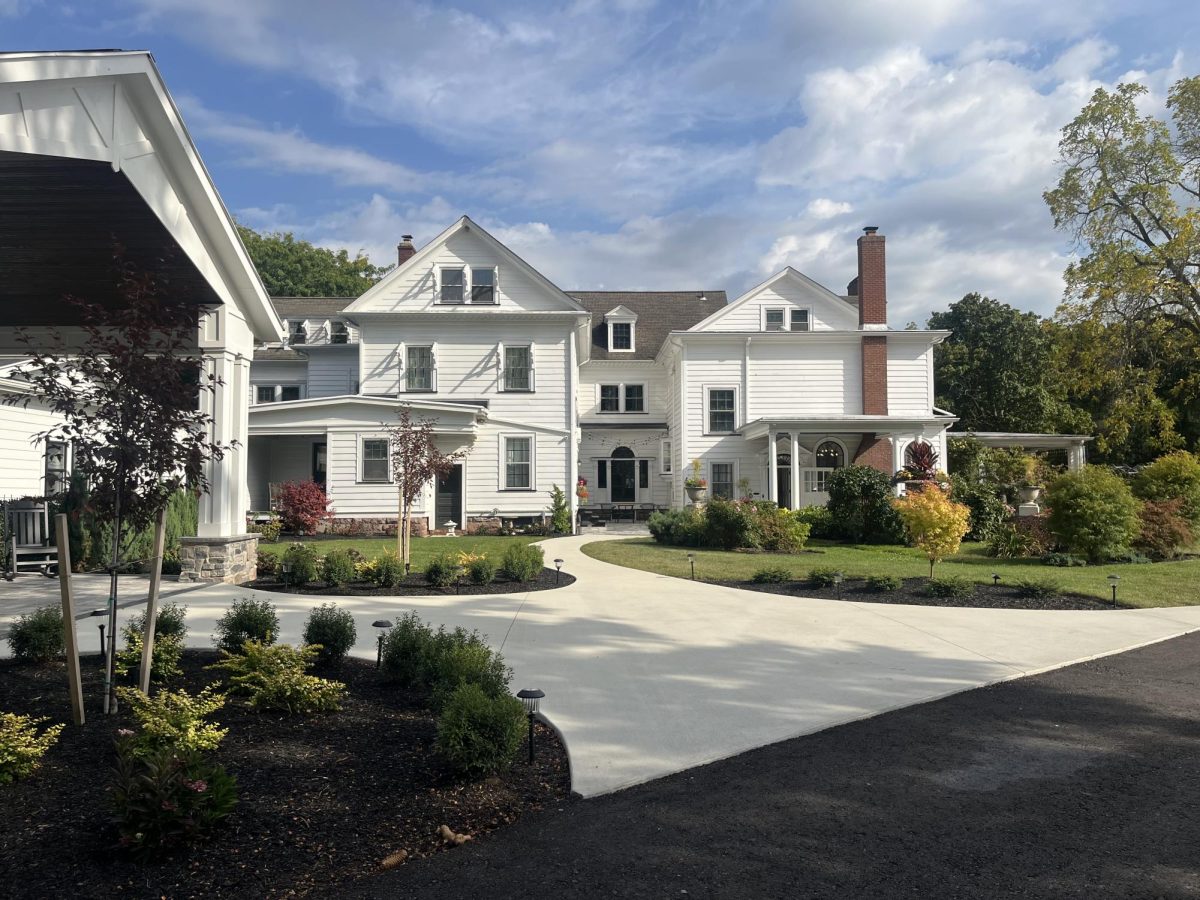BROCKPORT, N.Y. – Whether you’re walking through campus, strolling down Main Street or hiking the trails at Sweden Town Park, you may be unaware of the history that lies beneath your feet.
SUNY Brockport and the surrounding areas are part of the unceded lands of the Onöndowa’ga (Seneca) Nation of the Haudenosaunee (Iroquois) Confederacy. The university officially recognized Indigenous Peoples Day for the first time in October, but the focus on Native voices continues in the month of November through the observation of Native American Heritage Month.
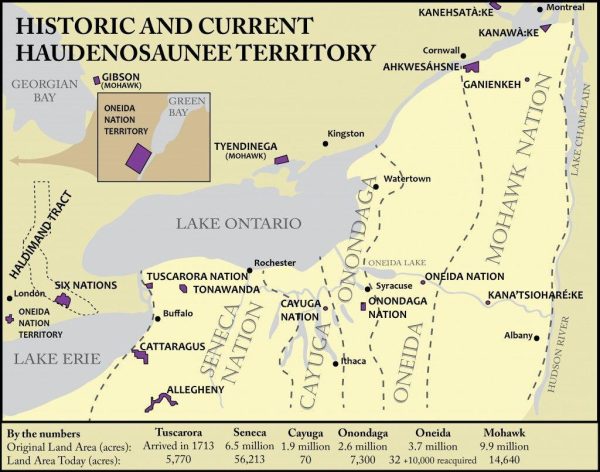
Assistant Professor of Miliary Science at SUNY Brockport Maj. Cherelle Garner views this month as a chance to teach people about the realities of Native populations in the U.S.

“[Being Native] has impacted my life from the very beginning,” Garner said. “I think what’s really important for me is just understanding the history of the country and being able to bring forth some truths and reconciliation in certain areas. It’s a very tragic truth, but there’s resilience in it.”
As an enrolled member of Navajo Nation, Garner grew up in Gallup, New Mexico, a city located on the edge of the Navajo reservation. Today, her matrilineal culture plays an important role in maintaining her identity.
“The respect of women and the importance of women is a part of who we are,” Garner said. “Normally when I introduce myself in Navajo, I give my clan, and your clan identifies your family line through your mother.”
Coming from a family of strong women and service members, Garner later attended Texas A&M University and commissioned as a second lieutenant in the U.S. Army. Her career took her to places like Alaska, Germany and Afghanistan before coming to SUNY Brockport as an instructor in 2021.
She is currently the only Native instructor on campus.
“When I first arrived here, I asked what the university was doing for Native American Heritage Month and I was told, ‘There’s nothing going on,’ Garner said.
The university invited her to speak the following year, where she gave a talk on “Indigenous Resilience and the Modern Native American.” Garner believes that advocacy and knowledge are just two ways to support Native communities.
“I think I was in college when people still were like, ‘Wow, you guys don’t live in tipis, right?’ This was in 2008,” Garner said.
In the past two decades, support for Indigenous recognition has grown both nationally and locally. According to Garner, there’s “an appetite” for cultural awareness in Brockport.
“People just want to learn, and that’s really good,” Garner said. “That’s what being on campus is all about. Being in college is about learning and being exposed to different perspectives.”
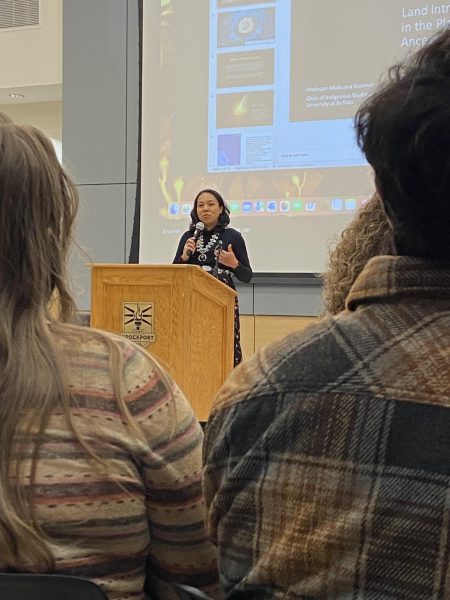
While Indigenous Peoples Day is a day of recognition, Native American Heritage Month dedicates a much longer period to learning about the history, culture and traditions of Native Americans in the U.S.
“I think it’s important because it allows a space and time for people to recognize Natives outside of the colonial view,” Garner said.

SUNY Brockport communication major Elsie Logan sees the importance of both recognition and education.
“A lot of people might not know things, so during this month there’s a lot of learning going on,” Logan said. “People who are unaware can become more educated on the topics.”
Logan is a member of the Tonawanda Band of Seneca (Snipe Clan). While being Native gives her a unique perspective on everyday life, she also notes the challenge of balancing her culture with America’s dominant culture.
“It’s tough. That’s definitely something that I’ve struggled with [and] something I’m still trying to figure out, especially being so close to home,” Logan said.
Her professors have been understanding in allowing her to miss class to attend ceremonies, but she still has other on-campus responsibilities to juggle, such as playing on the women’s volleyball team. During this time, Logan has turned to one of her favorite parts of her culture: being thankful.
“[It] really helps everyday life when things are hard,” said Logan. “You just remember to stay grateful, and that really helps you push through some troubles that you could have going on.”

An appreciative outlook on life and “for everything on Mother Earth” is something that Logan shares with SUNY Brockport accounting major Preston Benedict.
Benedict is Mohawk (Wolf Clan) and growing up in Akwesasne has exposed him to the importance of educating people on Native history.
“When the [news about] residential schools came out, not [very many] people knew about them,” Benedict said. “Since that came out, you see a lot more stuff in Ontario about education and reconciliation.”
Benedict refers to the Indian residential schools that operated in both the U.S. and Canada to systemically erase Native languages, cultures and populations.
“Most settlers in North America don’t have any idea about this very large and awful history that took place, which is now, at least in Canada, officially acknowledged as a genocide campaign,” said SUNY Brockport Associate Professor of Anthropology Dr. Neal Keating.
Like Benedict, Keating also believes SUNY Brockport has an obligation to strengthen relationships with local Native communities.
“One of the ways that we think that we could be a good neighbor as a state institution on unceded territory is to support language revitalization, especially at [the] Tonawanda [Seneca Nation Territory],” Keating said. “It’s one of the strongest ways of revitalizing culture because language is not just a different way of referring to things, it’s also different ways of thinking and imagining and experiencing being alive.”
Keating mentioned that SUNY Brockport is looking to recruit more Native faculty members and establish a new major in the department of education that would train teachers in Indigenous languages and cultures. He also wants to make the college more inviting for Native students.
“Since SUNY Brockport has been formed, there’s been a very low number of Native students matriculating here. We want to change that,” Keating said. “We want to make Brockport a more supportive, welcoming place for Indigenous students to succeed and get their college degrees in whatever field they want to study.”
Keating and Cherelle Garner are both part of the Indigenous Land Acknowledgement Committee, which seeks to address to the history of the land SUNY Brockport sits on. They hope these efforts will foster learning and awareness on campus.
“The idea is to remember who we are, where we are and what our relations [are] with the people on whose lands we are living and learning and working on,” Keating said.
For faculty like Neal Keating and Cherelle Garner and students like Elsie Logan and Preston Benedict, education is perhaps the most critical component in recognizing and supporting Native experiences. While Brockport has close ties to Native history, Native American Heritage Month is an opportunity for growth, understanding and appreciation of Native culture—both in this community and those around the country.

